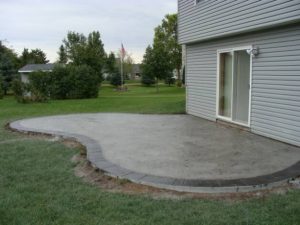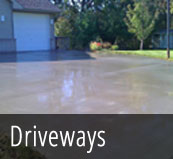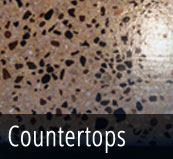
Introduction: Concrete is renowned for its durability and longevity, making it a popular choice for various construction projects, from driveways and sidewalks to countertops and patios. However, to ensure your concrete surfaces remain in excellent condition for years to come, it’s crucial to understand the importance of concrete sealing.
The Science Behind Concrete Sealing
Before diving into the reasons why sealing is essential, it’s helpful to understand how concrete sealing works. Concrete is a porous material, meaning it contains tiny pores and capillaries that can absorb moisture, oil, dirt, and other contaminants. When these substances penetrate the concrete, they can lead to various issues, including:
- Stains: Oil, grease, and other substances can leave unsightly stains on your concrete surfaces.
- Cracking: Moisture infiltration can lead to freeze-thaw damage in colder climates, causing cracks in the concrete.
- Erosion: Water infiltration can erode the surface of your concrete, leading to premature wear and tear.
- Mold and Mildew: Moist conditions can foster the growth of mold and mildew, compromising the appearance and safety of your concrete.
The Top Reasons to Seal Your Concrete
- Stain Prevention: One of the primary benefits of sealing concrete is its ability to repel stains. A quality sealer forms a protective barrier on the surface, preventing oil, grease, and other substances from penetrating the pores and causing unsightly stains.
- Moisture Protection: Sealing helps to block moisture infiltration, reducing the risk of cracks, erosion, and freeze-thaw damage. This is especially crucial for concrete exposed to varying weather conditions.
- Enhanced Durability: Sealing your concrete surfaces can significantly extend their lifespan. By preventing moisture-related issues, you can avoid costly repairs or replacements in the future.
- Easy Maintenance: Sealed concrete is much easier to clean and maintain. Regular sweeping and occasional gentle washing are often all that’s needed to keep sealed concrete looking its best.
- Improved Aesthetics: A quality sealer can enhance the appearance of your concrete, enriching its color and giving it a subtle sheen. This can make your concrete surfaces look more appealing and well-maintained.
- Safety: Sealed concrete is less susceptible to mold and mildew growth, making it safer for your family and guests. Additionally, it can provide better slip resistance, especially when a slip-resistant additive is incorporated into the sealer.
How Often Should You Seal Your Concrete?
The frequency of concrete sealing depends on various factors, including climate, usage, and the type of sealer used. As a general guideline:
- Driveways and high-traffic areas: These should typically be sealed every 1 to 3 years.
- Sidewalks and patios: Sealing every 2 to 5 years is usually sufficient.
- Countertops: Indoor countertops may require less frequent sealing, perhaps every 2 to 7 years, depending on usage.
Concrete sealing is a crucial step in maintaining the durability and aesthetics of your concrete surfaces. Whether it’s your driveway, sidewalk, patio, or countertops, a quality sealer can prevent stains, moisture damage, and other issues, ultimately saving you time and money on repairs. If you want your concrete investments to stand the test of time and continue looking their best, sealing the deal is an investment you won’t regret.
Contact Templin Concrete Construction at 612-388-1945 today or visit us online for more information about how to maintain your concrete sidewalks, patios, driveways, etc. with sealing.






